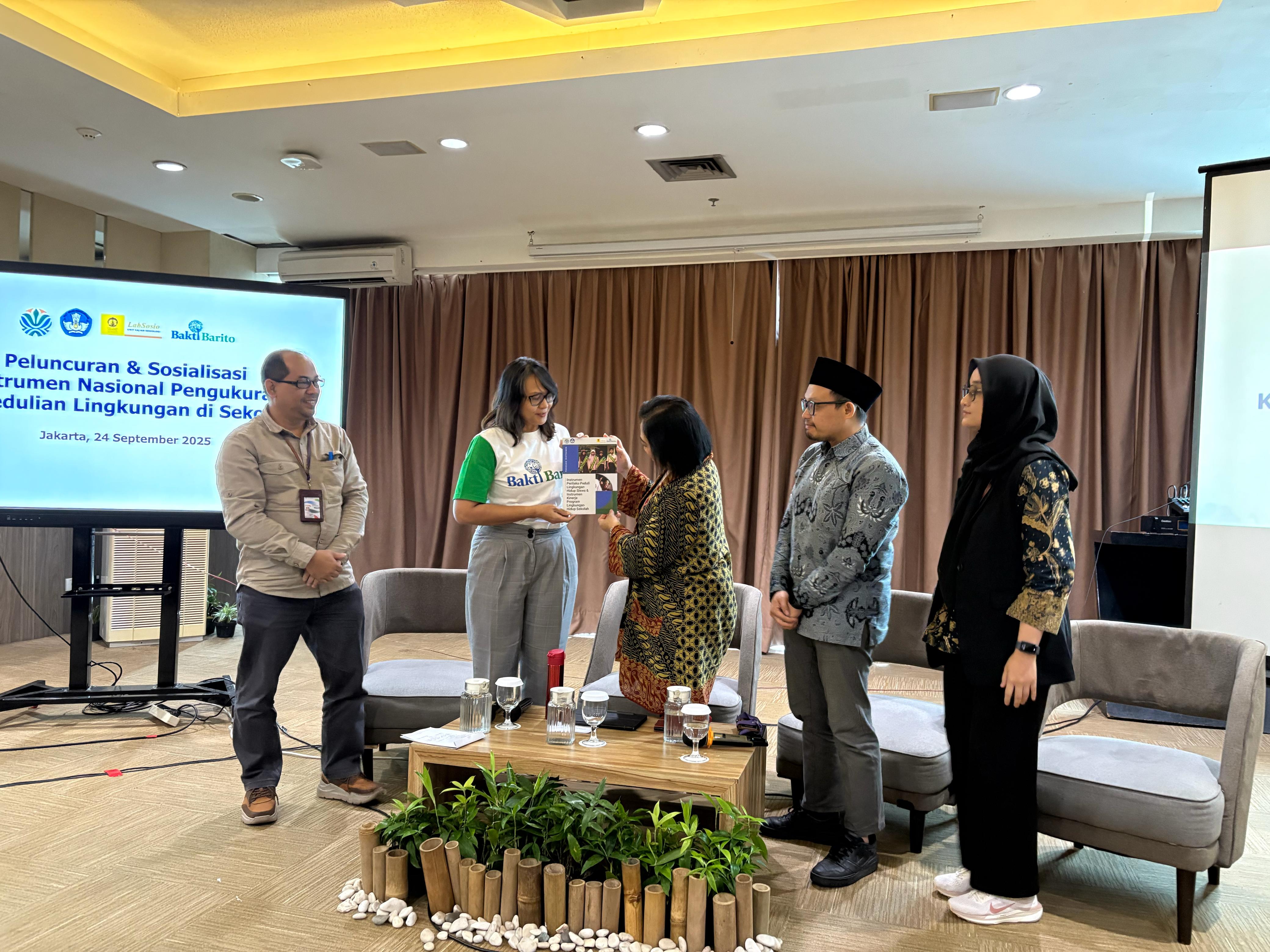Ministry of Environment / Environmental Management Agency Officially Launches National Tools to Measure Environmental Concern

Jakarta, 24 September 2025 – The Ministry of Environment, through the Center for the Development of Environmental Generations (Pusat Pengembangan Generasi Lingkungan Hidup — PPGLH), Ministry of Environment / Environmental Management Agency, today officially announced the completion of two school instruments that have been nationally validated: the Student Environmental Caring Behavior Instrument (Instrumen Perilaku Peduli Lingkungan Hidup Siswa — IPPLHS) and the School Environmental Care Performance Instrument (Instrumen Kinerja Sekolah Peduli Lingkungan Hidup — IKSPLH).
These two instruments or measurement tools were developed to help schools assess the extent to which students and their school environments practice environmental care. The measurement results can later be used to strengthen the implementation of the Adiwiyata Program. The Adiwiyata School Program has been running since 2006 and has successfully encouraged schools to teach environmentally friendly habits to students, both in the classroom and in daily activities.
“With measurable and comprehensive data, we at PPGLH, Ministry of Environment / Environmental Management Agency, can see more clearly the real conditions in the field. This data is very important to know what is already working well, which areas still need to be strengthened, and what strategic steps should be taken going forward. In this way, environmental programs in schools will not only run, but will also become more targeted and sustainable,” said Dra. Jo Kumala Dewi, M.Sc., Head of PPGLH, Ministry of Environment / Environmental Management Agency.
What are IPPLHS and IKSPLH?
IPPLHS is used to observe student behavior across four main aspects: how much students know about environmental issues; students’ attitudes toward the environment; each student’s daily behaviors when interacting with environmental issues; and students’ collective/ group behaviors when interacting with environmental issues.
IKSPLH focuses on assessing the school as a whole. This instrument measures whether the school has integrated environmental issues into the curriculum, whether it has a supporting management system, whether it has taken concrete actions (such as waste management or greening), whether it collaborates with parents, the community, or government, and whether the school is able to routinely and effectively monitor and evaluate its environment-related programs.
Dian A. Purbasari, Director of Bakti Barito, added, “This launch is an important milestone: it means these instruments are now ready to be used nationwide to inform more effective, data-driven environmental education. With these instruments, schools and partners can identify what works, scale up successful practices, and target support to the areas that need it most.”
Dr. Sulastri Sardjo from the LabSosio UI research team said, “The IPPLHS and IKSPLH instruments that have been validated provide an important empirical foundation for evaluation and research in environmental education. The collaboration between academics, government, and school practitioners makes these results relevant and ready to be used to strengthen Adiwiyata implementation across Indonesia.”
Bakti Barito provided primary support in the development of these instruments, in collaboration with PPGLH, Ministry of Environment / Environmental Management Agency, and LabSosio, University of Indonesia.
Next Steps
PPGLH, Ministry of Environment / Environmental Management Agency, will coordinate with various parties involved in Adiwiyata activities to ensure effective and efficient further development.